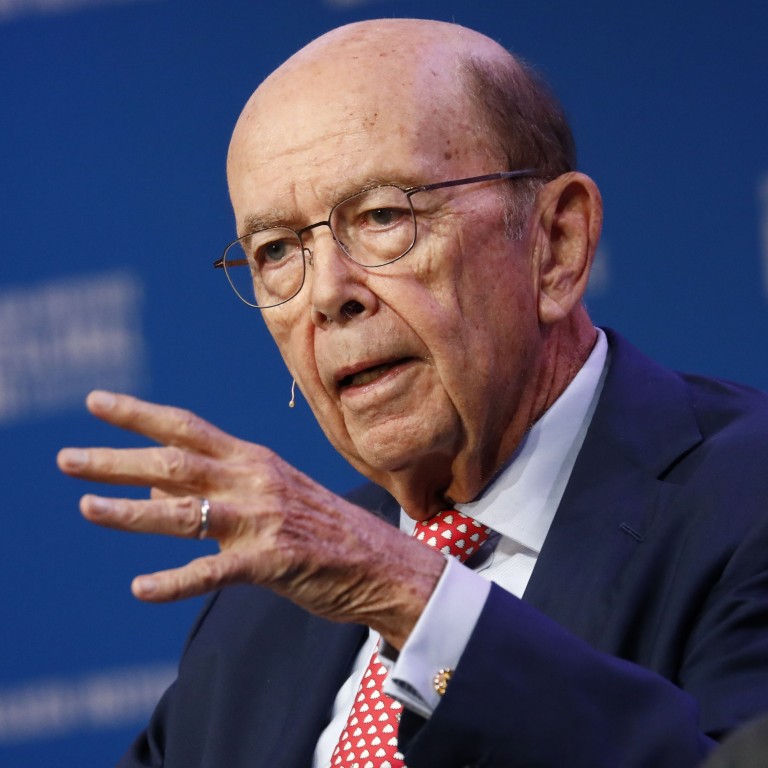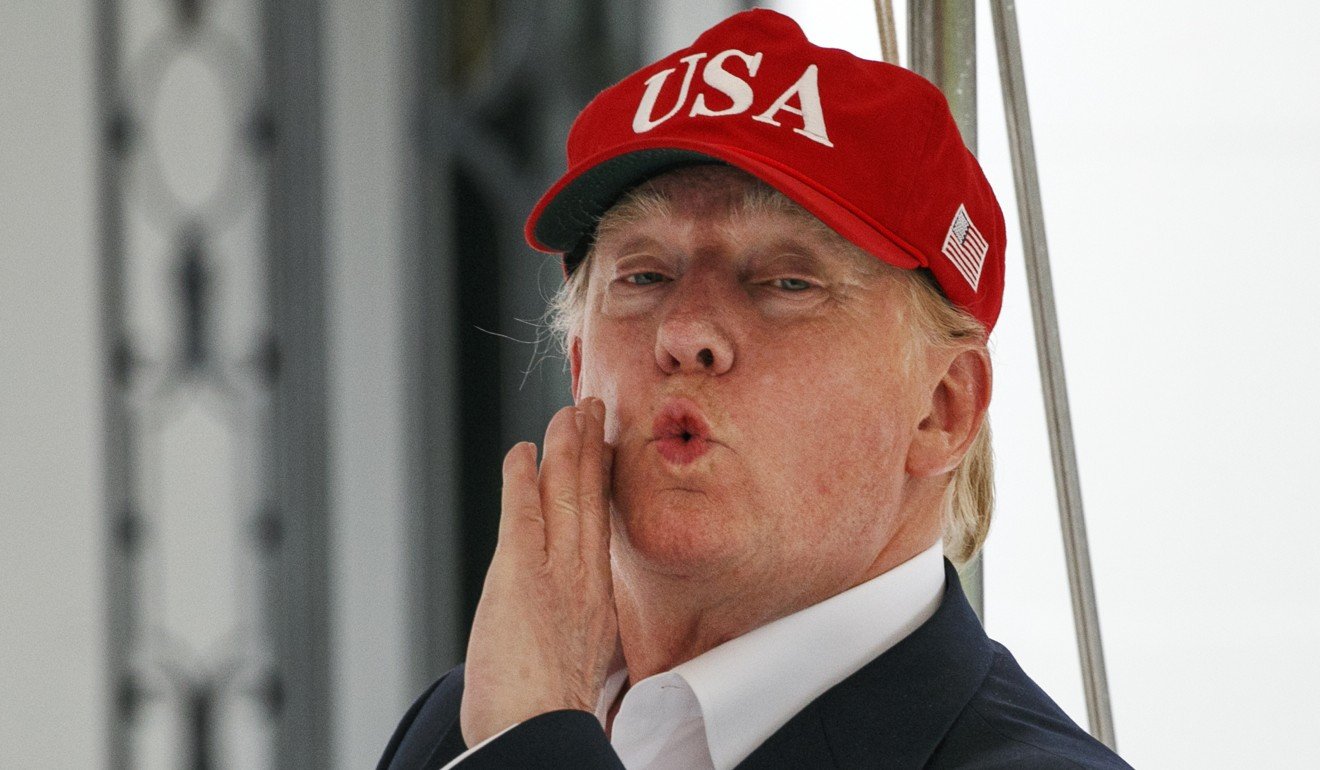
US Commerce Secretary Wilbur Ross rules out ‘definitive’ trade deal at Xi-Trump G20 parley
- ‘The trade deal is going to be thousands of pages,’ he tells a US business news channel
- ‘The G20 is not a place where anyone makes a definitive deal,’ Ross says
Presidents Donald Trump and Xi Jinping will not strike a “definitive deal” to end the trade war between the US and China at an anticipated meeting late this month during the G20 summit in Japan, US Commerce Secretary Wilbur Ross said on Tuesday.
The face-to-face conference between the leaders, yet to be officially confirmed, would at most result in “some sort of agreement on a path forward”, Ross said in an interview televised by business outlet CNBC.
A meeting between Trump and Xi on December 1, after the G20 meetings in Argentina, resulted in a trade war ceasefire, though that truce has crumbled since talks broke down in early May and both sides returned to imposing tariffs.
“The G20 is not a place where anyone makes a definitive deal,” Ross said during the interview on CNBC’s Squawk Box. “The trade deal is going to be thousands of pages.”

Trump raised the stakes of the potential face-to-face discussion on Monday when he told CNBC that he would impose 25 per cent tariffs on the remaining US$300 billion of currently untaxed Chinese imports if Xi declines to meet.
US Treasury Secretary Steven Mnuchin said over the weekend that Trump would be “perfectly happy” to impose those duties should the expected meeting on the sidelines of the G20, set for Osaka on June 28 and 29, fail to show progress.
“If China wants to move forward with the deal, we’re prepared to move forward on the terms we’ve done,” Mnuchin said on Sunday after a meeting of G20 finance ministers and central bank governors.
Trump ‘perfectly happy’ to impose more tariffs if talks fail to progress
Another member of Trump’s negotiating team, White House chief economic adviser Larry Kudlow, told CNBC on Tuesday that he expected the two leaders to use the G20 meeting to “pick up where we left off on achieving a really good deal, go back to that 90 per cent or whatever you want to say, and build on that for the final strokes” – a reference to both sides’ belief that a deal was close before negotiations crumbled on May 10.
US negotiators have blamed China for the breakdown and accused their counterparts of seeking to renege on fundamental commitments, while Beijing has said Washington is entirely at fault. On Tuesday, an economic adviser to Beijing said it was Washington’s demands for “hundreds” of changes to Chinese law that had led to the negotiations’ collapse.
China’s State Council adviser, Shi Yinhong, added that China would only agree to a “relatively weak enforcement mechanism” that did not include automatic penalties for violations of the trade deal.
Beyond trade war fire and fury, US and China look to reopen talks
Speaking later on Tuesday, Ross said it wouldn’t “make sense to go ahead” with a deal unless it included a mechanism that allowed the US to “take unilateral action to cure [violations]”.
Though he did not expect breakthroughs in Osaka, the commerce secretary remained hopeful that there would eventually be a deal, telling CNBC that “even shooting wars end in negotiation”.
Ross also dismissed criticism that the Trump administration’s unilateral approach to challenging Beijing on trade was weakened by the absence of multilateral efforts.
“If you have three people on your side against one guy on the other side, you’re going to waste half your time trying to get a consensus among three people in the room,” he said.

